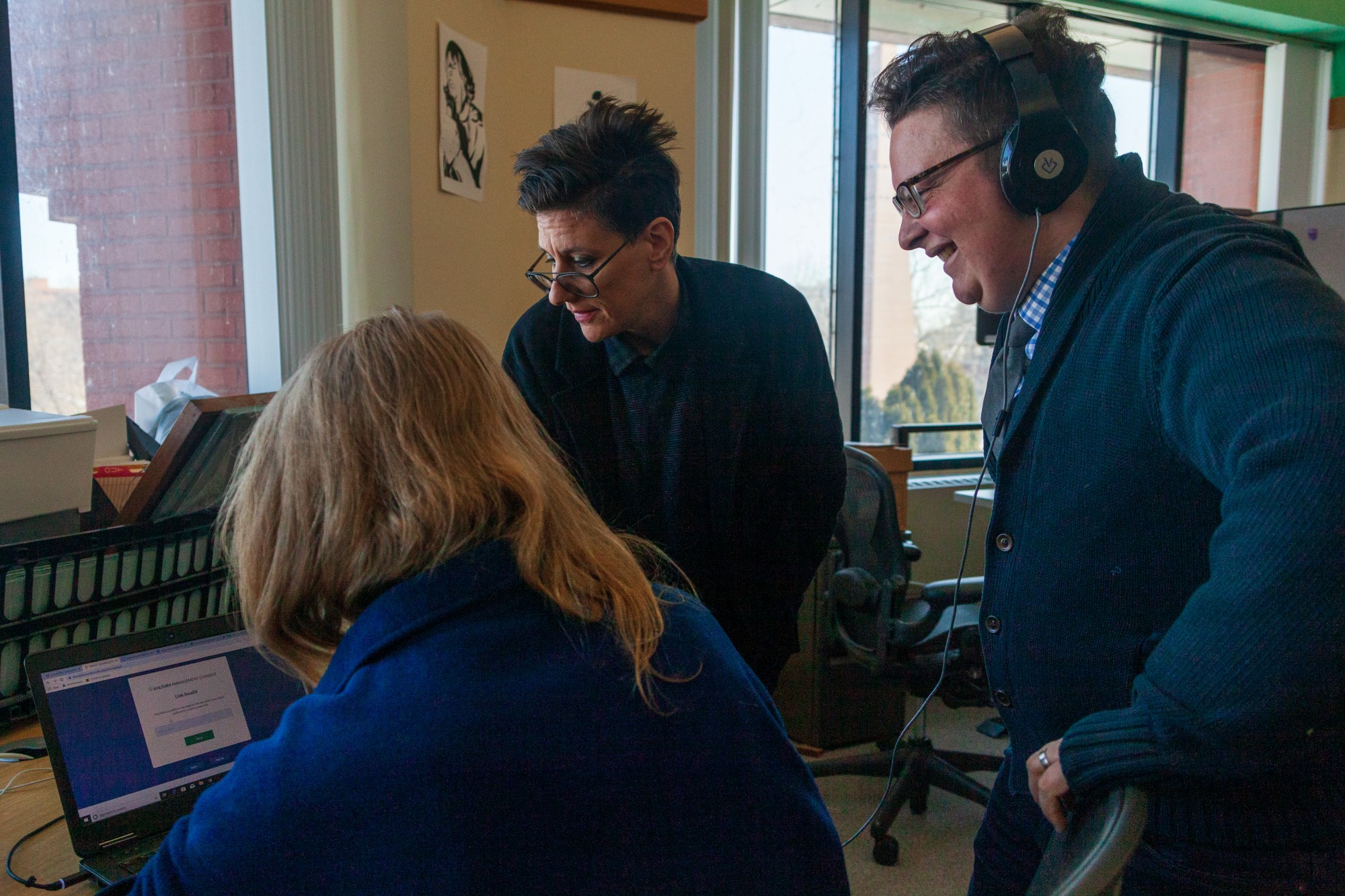A nationally known LGBTQ archive from the University of Minnesota will launch a podcast this summer to share the voices and work of transgender activists.
As part of the Tretter Transgender Oral History Project, the podcast, titled “Transcripts,” will touch on a variety of topics including immigration, medical care, trans politics and activist movements both past and current.
The oral historians decided to create a podcast in part to help trans activists tell their stories with their own voices.
“It can disrupt a lot of stereotypes about trans people just to be able to hear those voices in the first person,” said Cassius Adair, the podcast’s audio producer. “Trans people have low voices. Trans people have high voices. Some people have voices with different accents. And that to me feels really beautiful.”
The podcast is part of the University’s Jean-Nickolaus Tretter Collection, the largest archive of LGBTQ-specific material in the upper Midwest.
So far, the group only has funding for the first episode but hopes to produce a six-episode series.
Each episode will draw from more than 200 individual interviews collected by the Tretter Transgender Oral History Project.
“I think we’re in an interesting moment in terms of trans movements for justice,” said Mryl Beam, the current oral historian for the project. “We simultaneously have more mainstream representation of trans life than we’ve ever had in my lifetime, and at the same time we also have unprecedented levels of violence, specifically focused on black trans women.”
“Transcripts” is unique, the historians said, because it centers specifically on the histories of trans activism, with a focus on the experiences of trans and gender-nonconforming people of color.
“The idea is that there’s not one idea of what trans politics looks like,” Adair said. “We really want to make sure those stories are being told, and people really don’t have this idea that trans activism is this single, narrow and obscure issue that only affects a tiny population.”
Rachel Mattson, the curator of the Tretter Collection, said a lot can be learned by listening in on conversations happening within trans activist circles.
One of the team’s goals is to share these stories with a broader, non-academic audience and bring attention to the Tretter Transgender Oral History Project as a whole.
Beam said he hopes the podcast will help educate people and provide the tools future activists need to build upon the work of their predecessors.
Myra Billund-Phibbs, the oral history project’s assistant, said she also hopes the podcast will help people feel less alone.
“Most people don’t believe that they have any power,” she said. “But I do think that if people can be made aware that throughout recent history people have come together and worked and fought and sweat to change things … it’s going to make them feel empowered.”







